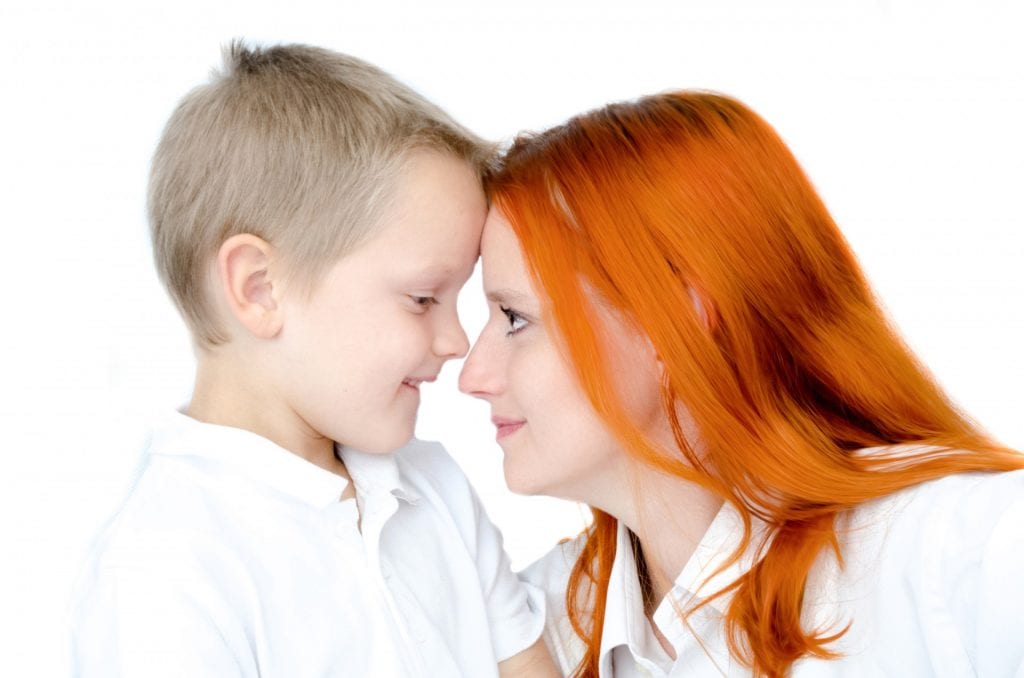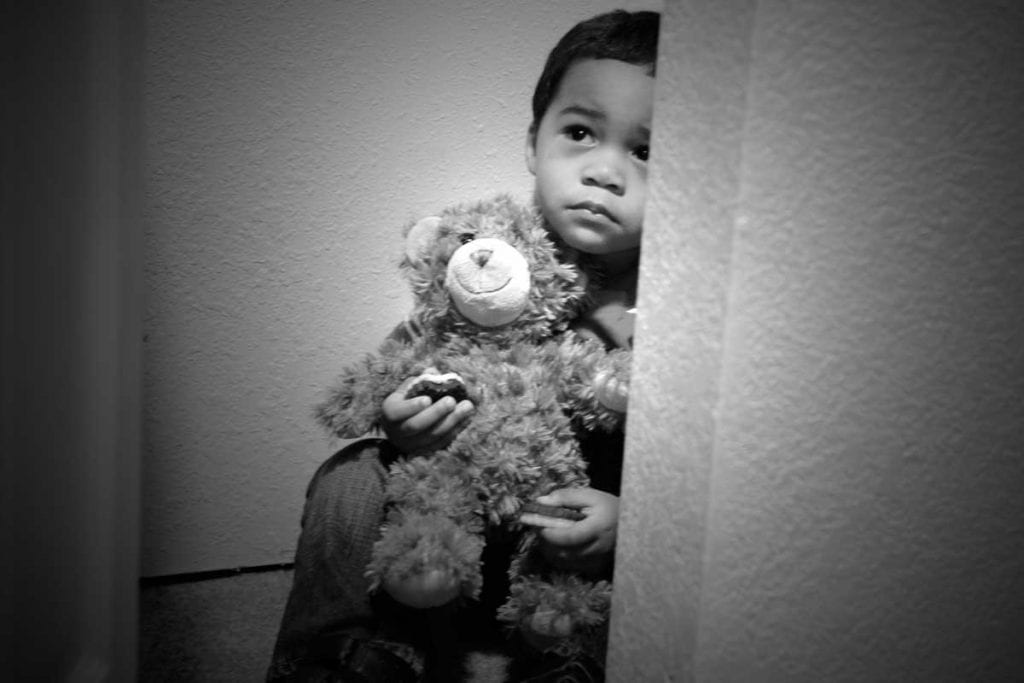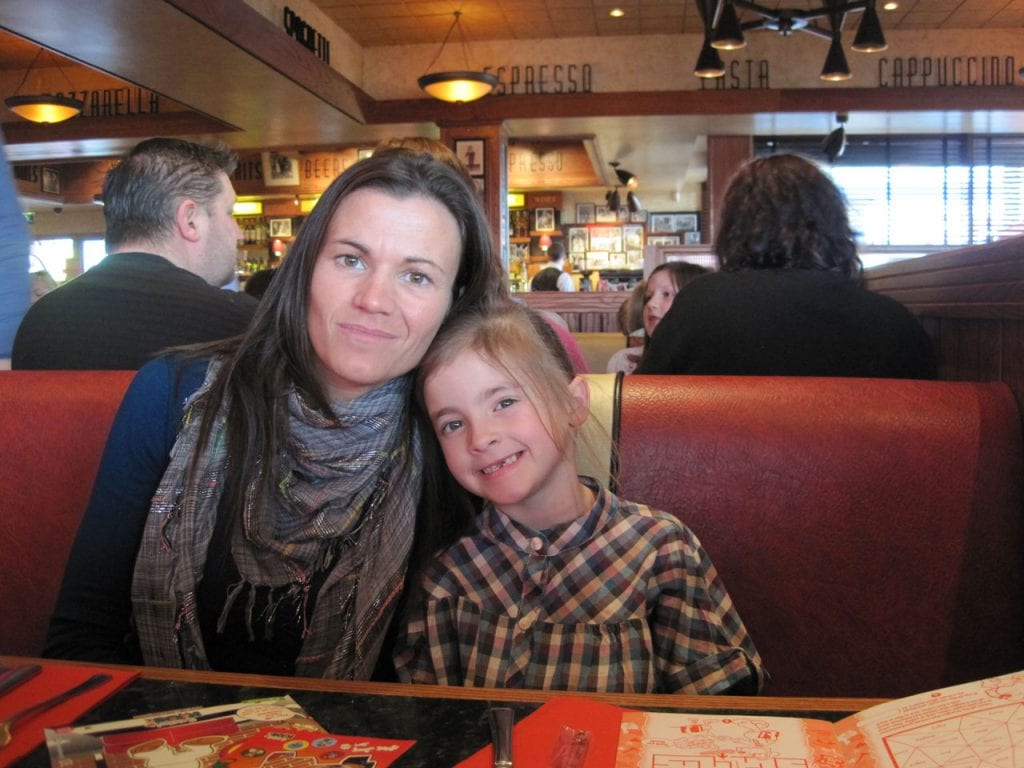As parents, we often ask ourselves what’s normal and what’s not with our developing children. There are milestones we’re told to be looking for them to meet throughout their years as a child and adolescent. We nurture them, keep them safe, care for them, and teach them as best as we can.

But, another task we have is to look after our children’s health regarding mental and emotional states. We must observe our kids and gauge how they’re doing on the inside so we can promote good, healthy child development. In young children, it can be a little harder to tell how they’re feeling because they haven’t quite learned how to express themselves very well about fears and emotions. This is why it’s very important for parents to understand what signs to look for in younger children and what those signs mean.
Clingy Child 7 Year Old—Normal Or Not So Much?
Let’s start off by saying, clinginess in young children doesn’t necessarily mean there is something bothering them, but it can. Most children will exhibit clingy behavior with their parents sometimes. That doesn’t mean you need to start worrying if they do.

It does mean you should pay attention, though. If the clinginess seems to stem from a specific environment or activity, there may be something for you to address. Also, if it continues to be an issue with an older child on a regular basis, you should assess whether there might be more to it. Children who become clingy seemingly out of the blue may have experienced something that’s troubling them, too.
Typically, you won’t see 7 year old children being as clingy as younger children, however, it’s not completely abnormal for them to attach themselves to a parent from time to time. Your job will be to figure out why they’re doing it, which is what we’re about to discuss.
Why Are Some Kids Clingy?
There are different reasons kids get clingy. One thing that can cause it is child anxiety. Most children experience some level of anxiety. That feeling can manifest itself as clinginess. The key here is to determine what is causing the anxiety.
Many kids feel separation anxiety when a parent leaves them. That separation anxiety can mean the child is scared about being without their parent, so they show their fear through being clingy with the parent, crying and grasping on. It’s not always about fear, though. Kids are developing themselves and figuring out who they are from very early on. They are learning about will and expression. The clinginess can sometimes just be an expression or assertion that they don’t want the parent to leave.

Anxiety over strangers is another reason children get clingy. If you’re in a place with many new faces or you’re leaving them with a new babysitter, you can certainly see some clinginess because your child doesn’t feel safe with the new people.
Other things that cause clinginess include a lack of self confidence, transitional periods, and insecurity. Stress and traumatic experiences can certainly bring on clinginess, as well.
Why Is My 7 Year Old So Clingy?
If your 7 year old is clingy, you should consider a few different things. It could be that you’re too tied up with other things you have to get done. You don’t need to give up doing those things, but maybe you need to find a better balance.
Sometimes kids at this age just want to be near you. You can allow them to do their activities in the same room where you are.
Another thing you can do is get your child started doing an activity and then remove yourself from it part way through. That way you’ve spent time together, but when it’s time to make dinner you can do so.
At 7 years old, kids are transitioning toward more independence, which can be pretty scary sometimes. They often get clingy because they’re feeling a little uneasy about breaking away from their parents. The best thing you can do is give them the reassurance they’re looking for. Be their safe place so they know it’s ok to grow up.

What Should I Expect From My 7 Year Old?
This age is where you’ll really start seeing a better understanding of the world around them. They can express themselves a little better and are good at asking a lot of questions.
7 year olds also experience a lot of emotional development and an increase in social desires and needs. Along with that comes more of a self awareness, too though. That means they can often be very critical of themselves and are developing self consciousness about things. They may be more sensitive, which can result in clinginess and other unwanted behaviors.
The emotional development also allows them to accept opinions that are different than their own, and thus letting them give their own opinions more freely, as well.

Do They Grow Out of It—Why Is My 8 Year Old So Clingy?
By 8 years old, if your child is being clingy, it’s likely something that’s coming from an underlying stress or feeling of anxiety. So, that’s not something they’re going to grow out of. It’s something that needs attention. It needs to be addressed.
If there is something stress-inducing that’s happened recently, such as the loss of a family member, the loss of a job in the house, a divorce, or a friend that moved away, try to give your child the time to adjust and give them more of you if that’s what they need. Loss and stress can cause children to feel insecure. Reassurance that you’re there will help them work through their feelings.

Why Is My Child So Clingy All Of A Sudden?
Usually when children get clingy all of a sudden it’s because something has caused them to feel anxiety and they don’t know how to express it any other way. They cling to a parent because that’s their safe place. Just be patient, maybe ask some questions, and you’ll eventually uncover what the source of the anxiety is.
Can A Child Be Too Attached?
A child can’t be too attached to you, however, they can be attached for the wrong reasons. You need some level of attachment from your children, but children’s health suffers on the mental level if they’re the ones who have to try to create the attachment. They can get clingy when the attachment isn’t made by you, instead having to push for the closeness themselves.
If the attachment is coming out of an insecurity due to a child’s perceived lack of enough time with a parent, then the parents may want to make some adjustments in how they develop relationships with their children.

Why Does My Child Follow Me Everywhere?
Toddlers will often follow their parents from room to room, even into the bathroom if you let them. But, why do they do this? One reason is they feel safest when they’re with you. They also enjoy being with you. They learn from watching you too, so curiosity plays a big role in why kids follow parents around everywhere.
Why Does My Child Only Want Mommy?
Children who only want mommy, or only one parent over the other, are sometimes just trying to assert their independence. If he or she says who they want, then they are making a choice on their own. Understand that it’s nothing personal against the parent who’s not being chosen.
If this happens with your little one, make sure, as mommy, you encourage tasks and activities to be taken on between the child and the other parent. If you are the parent that’s being shunned, don’t react negatively. Continue to show your love knowing that the tides will probably shift back in your direction very soon, anyway.
It’s Not Just Older Children—How Do You Deal With A Clingy One Year Old?
Clingy one year olds are different than an older child who’s having some attachment issues. Parents should remember that it doesn’t have to mean something bad when a young child clings to them.
Many parents worry that responding to a clingy child will encourage the behavior and hinder their independence. However, if you’re wondering ‘what should I do about my clingy child?’, there are strategies that can help. Gradually increasing separation time, setting consistent boundaries, and providing opportunities for social interaction with other children can all encourage independence and reduce clinginess.
You should validate your child’s feelings. Let them know you’re there for them. Acknowledge their emotions and then reassure them. Children’s health and mental state thrive better when they feel cared for and noticed.

How Do You Break A Clingy Child?
It’s not so much breaking a clingy child that you should concern yourself with. It’s how you need to handle it that matters. And you should start by making adjustments to your own thinking, if it’s needed.
You need to find patience and understanding when dealing with a clingy child 7 year old. Don’t get irritated or angry with them. Don’t push them away. Instead, find a way to be positive and encouraging for them so they want to be more independent.
Whenever your child does something on their own, be generous with your praise of them. Celebrate their independence in accomplishing what they did. They’ll start to see that they can do things successfully without you.
The more positive you are with your children, the more confident they’ll feel. Also, make sure you’re reaching out to provide attention and spend quality time with them that you initiate. That way children don’t feel the need to cling to you to get the time that they crave.
Clingy Child 7 Year Old Other Resources
https://www.parentmap.com/article/ask-the-experts-kids-who-cling
https://www.themontessorinotebook.com/my-child-is-being-so-clingy/
Last Updated on May 12, 2023 by Inma Barquero
DISCLAIMER (IMPORTANT): This information (including all text, images, audio, or other formats on FamilyHype.com) is not intended to be a substitute for informed professional advice, diagnosis, endorsement or treatment. You should not take any action or avoid taking action without consulting a qualified professional. Always seek the advice of your physician or other qualified health provider with any questions about medical conditions. Do not disregard professional medical advice or delay seeking advice or treatment because of something you have read here a FamilyHype.com.